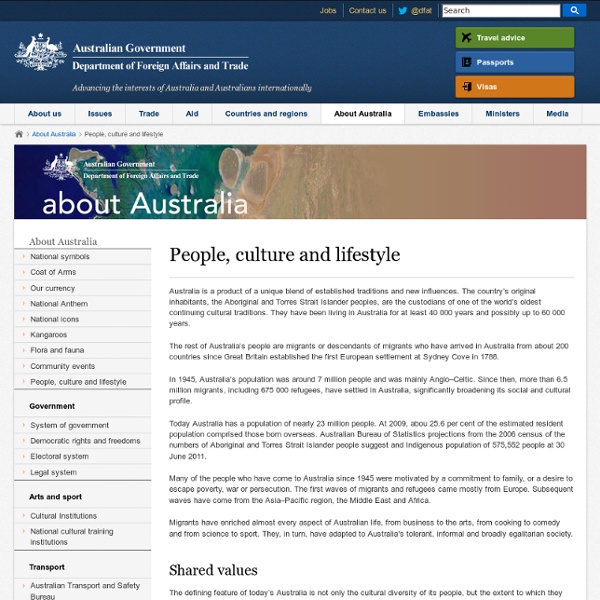Public Holidays and Special Celebrations : IS3 - International Student Support
Australians hold certain days each year as special days of national meaning. We may recognise the day with a holiday for everyone or we can celebrate the day as a nation with special events. Most States and Territories observe some of the public holidays on the same date. They have others on different dates or have some days that only their State or Territory celebrates. New Year Australians love to celebrate New Year. Australia Day Australia Day, January 26, is the day we as a people and place celebrate our nationhood. Canberra Day Canberra Day is a public holiday that celebrates the birth of the Nations Capital. The Canberra Festival is a nine day event that reflects Canberra's unique qualities through exhibitions, displays, sporting events, music, film, dance and theatre. This is a very family friendly and community spirited event. Easter Easter commemorates the resurrection (return to life) of Jesus Christ following his death by crucifixion. Easter Traditions Anzac Day Labor Day Christmas
Australia - Culture, Customs and Etiquette | global-etiquette
Welcome to our guide to Australia. This is useful for anyone researching Australian culture, customs, manners, etiquette, values and wanting to understand the people better. You may be going to Australia on business, for a visit or even hosting Australian colleagues or clients in your own country. Remember this is only a very basic level introduction and is not meant to stereotype all Aussie people you may meet! Facts and Statistics Location: Oceania, continent between the Indian Ocean and the South Pacific Ocean Capital: Canberra Climate: Generally arid to semiarid; temperate in south and east; tropical in north Population: 19,913,144 (July 2004 est.) Ethnic Make-up: Caucasian 92%, Asian 7%, aboriginal and other 1% Religions: Anglican 26.1%, Roman Catholic 26%, other Christian 24.3%, non-Christian 11%, other 12.6% Government: democratic, federal-state system recognizing the British monarch as sovereign Languages in Australia English is the primary language used in Australia.
National Anthem - About Australia - Australian Government Department of Foreign Affairs and Trade
‘Advance Australia Fair’ is the national anthem of Australia. A revised version of a late nineteenth century patriotic song, it was officially declared the national anthem on 19 April 1984. The composer Peter Dodds McCormick, a Scot, composed ‘Advance Australia Fair’ under the pen-name ‘Amicus’ (amicus is the Latin word for ‘friend’). Some of the original words of the song have been changed for the official version. How ‘Advance Australia Fair’ became the national anthem The official anthem was ‘God Save the Queen’ (or ‘King’) from 1788 to 1974, although numerous commercial and official competitions were held over the years to find a substitute. John Dunmore Lang, who published an ‘Australian Anthem’ and an ‘Australian Hymn’ in 1826, was an early advocate of a distinctively Australian anthem. The issue of a truly national anthem was raised persistently before the 1956 Olympic Games, which were held in Melbourne. The polls and what followed Advance Australia Fair Further information
Culture of Australia
The culture of Australia is essentially a Western culture influenced by the unique geography of the Australian continent, the diverse input of Aboriginal and Torres Strait Islander peoples, the British colonisation of Australia that began in 1788, and the various waves of multi-ethnic migration that followed.[1] The predominance of the English language, the existence of a democratic system of government drawing upon the British traditions of Westminster Government, Parliamentarianism and constitutional monarchy, American constitutionalist and federalist traditions, Christianity as the dominant religion, and the popularity of sports such as cricket and rugby are all evidence of a significant Anglo-Celtic heritage. Australian culture has diverged significantly since British settlement in 1788. Aboriginal people are believed to have arrived as early as 60,000 years ago, and evidence of Aboriginal art in Australia dates back at least 30,000 years. Development of Australian culture[edit]
Australian Culture : IS3 - International Student Support
Australians generally adopt a relaxed and informal lifestyle, and this can be seen in their manner of dressing and in their social interaction. With regard to dressing, people in Australia prefer casual clothes, such as an open-necked shirt and shorts or jeans, t-shirts and sports shoes, rather than suits and neckties. Suits and neckties are usually only worn by some professional people (accountants, solicitors, etc) or to formal or important functions, such as weddings and funerals. When addressing one another, Australians will readily use first names - it is becoming more common for children to address adults by their first name and it is also not unusual for teachers and lecturers to be addressed by their first names in Australia. In the home Australians value their privacy and the exclusivity of the ‘nuclear family’ that is, where family life centres around the mother, the father and the children. Australians will only invite you home if they know you well. Using the kitchen



